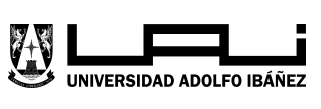¿POR QUÉ ACEPTAR UNIVERSALES TRASCENDENTES?
DOI: https://doi.org/10.15691/0718-5448Vol4Iss2a112
Resumen
En este trabajo se argumenta que si se deben aceptar universales en nuestra ontología, entonces deben aceptarse también universales trascendentes. Se presentan tres argumentos a favor de esta conclusión: (a) la plausibilidad de aceptar la existencia de universales complejos construidos a partir de otros más simples; (b) la contingencia de las instanciaciones respecto del universal que es instanciado; y (c) la existencia plausible de leyes naturales incluso cuando los universales que aparecen ahí no están instanciados. Luego se discuten varias objeciones tradicionales contra los universales trascendentes que, luego de consideradas, se encuentran inconvincentes.
Referencias
ALVARADO, J. T., «Mundos posibles como universales estructurales máximos. Una conjetura ontológica», Análisis filosófico, 27 N° 2, 2007, pp. 119-143.
. ....., «Qué es el espacio ontológico modal?», Phílosophica, 29,
, pp. 7-44.
ARMSTRONG, D.M., A World of States of Affairs, Cambridge U.P., Cambridge, 1997.
................., Truth trnd Truthhmakers, Cambridge U.P., Cambndge, 2004.
................., Universals An Opinionated Introduction, Boulder, Westview,
........, Universais and Scientific Realism, Cambridge U.P.., Cambridge,
........., What is a law of Nature?, Cambdge U.P., Cambridge, 1983.
BJGELOW, P. y PARGETTER, R., Science and Necessiiy, Cambridge U.P., Cambridge, 1990.
BIRDS, A., Nature Metaphysics. Laws and Properties, Clarendon Press, Oxford, 2007.
CAMPBELL, K., «The Metaphysic of Abstract Particulars», Midwest Studies in Philosopy 6, 1981, pp. 477-488.
DRETSKE, F. I, «Laws of Nature», Phiosophy of Science 44, 1977, pp. 248-268.
ELLIS, B., Scientific Essentialism, Cambridge U.P., Cambridge, 2001.
FORREST, R, «Ways Worlds Could Be», Australasian Journal of Philosophy 64, 1986, pp. 15-24.
JACKSON, F., «Statements about Universals», Mind 86, 1977, pp. 89-92.
LEWIS, D., «New Work for a Theory of Universals», Papers in Metaphysics and Epistemology, Cambridge University Press, Cambridge, 1999, pp. 8-55.
................, ,On the Plurality of Worlds, Blackwell Oxford, 1986.
MELLOR, D.H., The Facts of Causation. Routledge, Londres, 1995.
MUMFORD,S.,Laws in Nature, Routledge, Londres, 2004.
OLIVER, A., «The Metaphysics of Properties», Mind 105, 1996, pp. 1-80.
RODRIGUEZ-PEREYRA, G., Resemblance Nominalism. A Solution to the Problem of Universals, Clarendon Press, Oxford, 2002.
SHAPIRO, S., Philosophy of Mathematics. Structure and Ontology. Oxford U.P., Oxford, 1997.
SHOEMAKER, S., «Causality and Properties», en Idenliiy, Cause, and Mind. Philosophical Essays, Clarendon Press, Oxford, 2003, pp. 206-233.
SIMONS, P., «Particulars in Particular Clothing: Three Trope Theories of Substance», Philosophy and Phenomenological Research 54, 1994, pp. 553-575.
STALNAKER, R., «Possible Worlds» en Ways a World Might Be. Metaphysical and AntiMetaphysical Essays, Clarendon Press, Oxford, 2003.
TOOLEY, M., Causation, A Realist Approach, Clarednon Press, Oxford, 1987.
............, «The nature of Laws», Canadian Joumal of Philosophy 7,
, pp. 667-698.
WLLIAMS, D.C., «Qn the Elements of Being: I», Review of Metaphysics 7, 1953, pp. 2-18.
Enlaces refback
- No hay ningún enlace refback.
Copyright (c) 2017 José Tomás Alvarado

Este obra está bajo una licencia de Creative Commons Reconocimiento-CompartirIgual 4.0 Internacional.



